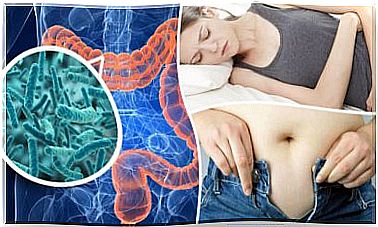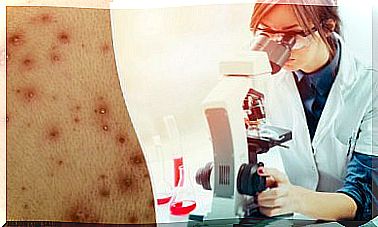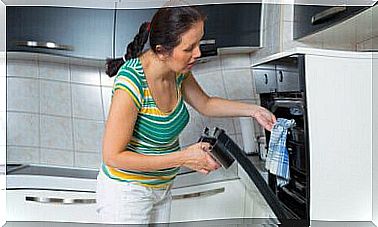Is It Possible To Prevent Colorectal Cancer?
Whole foods provide us with fiber that would help keep our intestines clean. Remember to also drink a lot of water.
Colorectal cancer, which is one of the most common, occurs in the large intestine and rectum. Knowing its symptoms is essential to detect and treat it quickly.
It is also important that we take care of this part of our body, since little by little small polyps can form that in the long run can turn out to be cancerous, but which can also be prevented.
Symptoms of colorectal cancer
On the website of the Centers for Disease Control and Prevention, the following symptoms are cited as those most representative of colorectal cancer:
- Recurring bowel problems and changes in stool.
- Blood in the stool.
- Discomfort in the abdomen, similar to colic, with gas and pain.
- Weight loss for no apparent reason.
- Weakness.
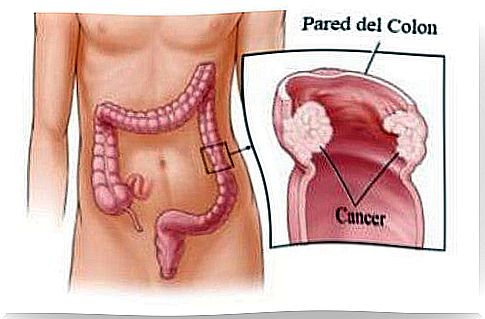
Risk factor’s
In general, the risk of developing colorectal cancer increases with age. Although it is not known today exactly why this type of cancer appears, some factors are known that could increase the risk of suffering from it, including:
- Be over 50 years old.
- Family history of colorectal cancer.
- Chronic intestinal problems.
- Diabetes.
- Poor diet, high in harmful fats and poor in foods with fiber.
- Tobacco and alcohol.
- Sedentary lifestyle.
- Overweight.
Comprehensive nutrition
Whole foods are not a fad. Fiber helps keep our intestines clean and healthy. Therefore, we should always try to choose foods with fiber and as little processed as possible. We find fiber in foods like:
- Fresh and dried fruits.
- Vegetables and vegetables.
- Vegetables.
- Nuts.
- Based on whole grains: bread, flour, grain (rice, millet, quinoa, wheat) and pasta.
When we increase the consumption of fiber in our diet, it is important to also increase the consumption of water between meals, since otherwise the first days we may notice greater constipation due to the lack of liquid. A study in Hepatogastroenterology indicates that combining fiber and water would help increase bowel movements.
We will drink at least 6 to 10 glasses a day. The amount of water we need will depend on our age, if we make physical efforts and the outside temperature.
Can colorectal cancer be prevented?
The first preventive step you can take is to have regular check-ups after turning 50. Undoubtedly, this is the best option to control the growth of polyps that could trigger the disease.
On the other hand, some research indicates that modifying your diet could help prevent it. However, the data in this regard are not conclusive. In general, it is usually recommended to eat a diet low in animal fats and rich in vegetables, fruits and whole grains.
Lowering your intake of red and processed meat while increasing your intake of vegetables, fruits, and grains could also help reduce your risk of other chronic diseases, such as diabetes or cardiovascular disease.
To obtain protein, it is recommended to opt better for organic poultry meat, fish, eggs and legumes. These foods will provide the necessary energy for our body.
Of course, it is also advisable to avoid leading a sedentary life. It is believed that physical exercise would also help reduce the risk of colon and rectal cancer, as well as giving up (or at least not abusing) alcohol and cigarettes.
Essential vitamins and minerals
Calcium
This mineral has been shown in some studies to reduce the risk of colon and rectal cancer. We will find it in the following foods:
- Sesame (in seeds, in tahini, in oil, in gomasio …).
- Green leaf (spinach, chard, broccoli …).
- Salmon.
- Sardines
- Almonds
Vitamin D
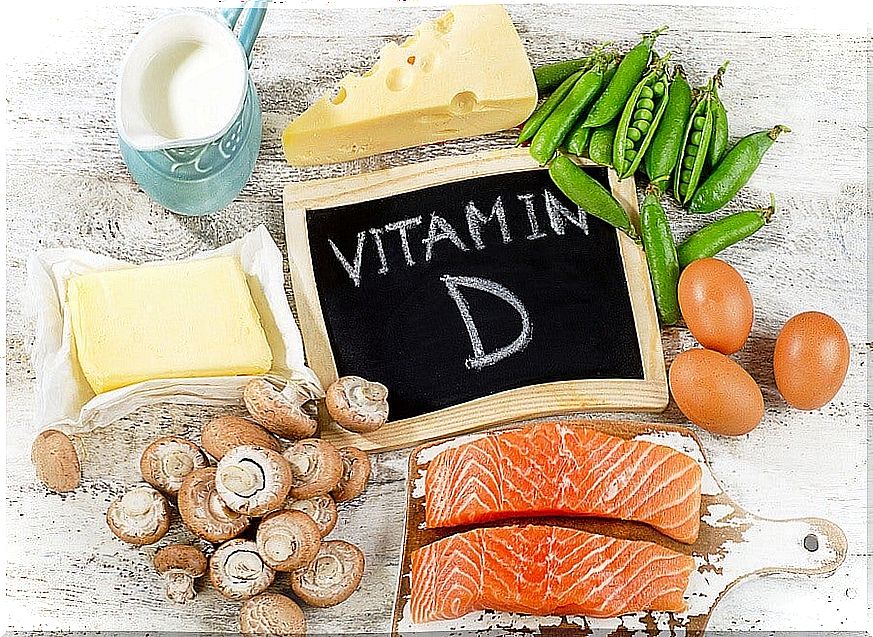
Whenever we talk about calcium, we will also refer to vitamin D, since it is essential to assimilate it well. The most natural and healthy source of vitamin D is the sun. We can take it in brief moments first thing in the day and at dusk, exposing the skin to the sun. There are also some foods that contain it:
- Salmon.
- Mackerel.
- Sardines
- Egg.
Folic acid
Folic acid or vitamin B9 helps the body create new cells and, for this reason, it is believed to reduce the risk of colon cancer. However, existing studies so far have not been able to support this theory. We find it in:
- Green leaves (chard, broccoli, spinach).
- Asparagus.
- Green peas.
- Lentils.
- Garbanzo beans.
- Strawberry.
- Orange.
- Papaya.
Magnesium
This mineral is used to alleviate digestive problems associated with intestinal transit, such as irritable bowel movement, and would also help reduce (modestly) the risk of cancer, according to data published in the European Journal of Clinical Nutrition . We will take foods rich in magnesium daily:
- Cocoa
- Pumpkin, flax and sunflower seeds
- Almonds
- Cashew nuts
- Brazil nuts
- White beans
- Green peas
- Green leaf
Selenium
The low body content of selenium could be one of the risk factors for colorectal cancer, for this reason, according to some studies, increasing your intake could help reduce the risk of suffering from this disease.
It is considered that this mineral would be especially important from the age of 40. We can take it as a supplement or by consuming two teaspoons of brewer’s yeast daily mixed with water or a little juice.
In conclusion, the best way to prevent colorectal cancer is to visit the doctor regularly, especially from the age of 50, and undergo the tests that he considers necessary, in addition to leading a healthy lifestyle. Remember: before any persistent discomfort, you must visit the specialist.
